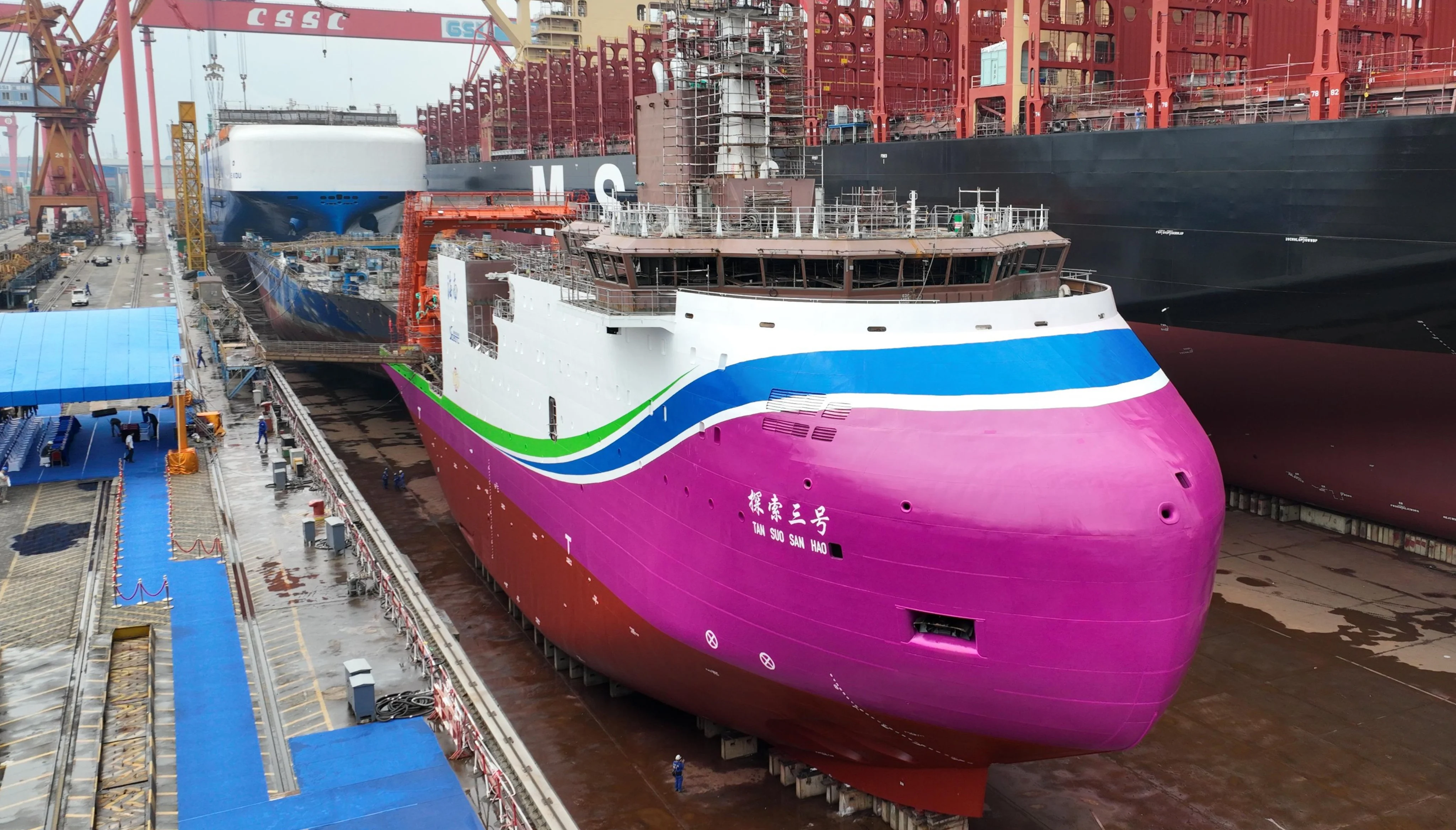Copyright scmp

China’s geopolitical rivalry with the West is expanding into new frontiers – including the polar regions, outer space, cyberspace and the deep sea – as Beijing unveils a flurry of scientific milestones and state-driven ambitions that analysts say are challenging traditional Western dominance across these critical domains. On Monday, China announced that its independently designed and built polar research vessel – the world’s first manned deep-sea-operations depot ship with icebreaking capabilities – and its crewed submersible had successfully conducted a scientific expedition performing crewed dives in the Arctic Ocean. The mission by the Tan Suo San Hao (Explorer Three) made China the only nation capable of carrying out continuous manned deep-sea dives in the dense Arctic sea ice zone, according to People’s Daily, with the state mouthpiece adding that the accomplishment “further cements its position as a global leader in manned deep-sea technology”. The report on Monday highlighted that the expedition dived to a maximum depth of 5,277 metres (17,313 feet) in the central Arctic Basin, where sea ice coverage exceeded 80 per cent. And in the context of China’s 14th five-year plan (2021-2025), the mission was said to be part of a key project focused on deep-sea and polar technologies The same day, People’s Daily revealed that China now holds more than half of all effective global patents in marine equipment manufacturing, surpassing South Korea, the United States and Japan. A day earlier, it ran an editorial about the country’s BeiDou satellite navigation system – an alternative to the US-run Global Positioning System (GPS) – that is set to launch next-generation satellites under the upcoming 15th five-year plan, promising real-time positioning accuracy ranging from metres to decimetres. The wave of state media coverage, coming shortly after the conclusion of China’s fourth plenum, underscores Beijing’s years-long campaign to expand its technological capabilities in outer space, the deep sea and polar regions. That push, analysts say, is accelerating amid escalating competition with Western powers. Liang Yan, a professor of economics at Willamette University in the US, said China is making significant headway in frontier technologies such as space and deep-sea exploration and geographic information systems. “In some sub-areas, China is, in fact, leading,” she said. Liang emphasised that developing these technologies serves multiple aims, in China’s eyes, including national security, technological self-reliance and economic growth. The Berlin-based Mercator Institute for China Studies (Merics) warned in a report last week that China had made significant advances in what Beijing terms “strategic new frontiers”, describing domains critical to national security and global influence. “The terminology is not new,” said Helena Legarda, head of Merics’ foreign relations programme. “But intensified China-US competition has brought it to prominence in Chinese discourses.” According to the think tank, China has established itself as a major power in cyberspace and outer space, leveraging years of state-led investment in technology and infrastructure to build globally competitive capabilities. “In some indexes, China ranks as the second cyber power, after the United States,” the report said. “China’s space programme, meanwhile, has reached milestones, including human space flight and moon landings, previously achieved only by Russia, the United States and few other countries.” Merics also pointed to China’s growing presence beneath the seas, noting that its navy operates 52 attack submarines, including nuclear-powered vessels, while developing unstaffed underwater vehicles, cable-cutting systems, and advanced sonar technologies essential for undersea cable deployment and deep-sea mining. The increasing number and sensitivity of China-Russia space-cooperation agreements indicate a deepening strategic partnership Mercator Institute for China Studies report Beijing’s ambitions also extend to the poles. Having declared itself a “near-Arctic state”, China has expanded its Arctic and Antarctic capabilities, launching three new icebreakers since 2019, with more under construction, and establishing several polar research stations in recent years, the report said. The German think tank also observed a deepening strategic partnership with Russia, citing joint projects such as plans to build a lunar base programme – with construction expected in the 2030s and full operation by 2050. In May, the two sides also announced plans to construct a nuclear power plant on the moon to supply energy for the base. Sanctions on Moscow have further driven the two powers closer together, according to Merics. “Lack of transparency makes it difficult to assess the specifics and progress of the programmes announced,” the report said. “But the increasing number and sensitivity of China-Russia space-cooperation agreements indicate a deepening strategic partnership.” The think tank also warned that “China’s rapid advances in space and polar technology could jeopardise the US and European technological and competitive edge in these areas”. And it added that Beijing’s ambitions and activities in these “strategic new frontiers” pose clear challenges to Europe’s interests, security, values and long-term economic development. Liang from Willamette University said that it was “both misleading and potentially dangerous to see China’s technological advancements in these areas as a threat – China’s interest is to achieve prosperity through peace and development, rather than through domination”. Shan Guangcun, a professor specialising in artificial intelligence, robotics and smart sensors at the University of the Chinese Academy of Sciences in Beijing, said China’s proactive push into these frontier fields partly stems from the fear of past technological “neck-choking”. “Ensuring technological autonomy in key areas such as semiconductors, energy, deep-sea exploration and space has become a cornerstone of national security,” Shan said. “For the West – particularly the US – which has long dominated the global technology order, China’s rise is perceived as a ‘challenge’ to the existing system,” he added. “They are accustomed to the military, economic and discursive advantages that come with technological monopolies. “So, China’s catching-up is naturally viewed through a zero-sum lens.”



